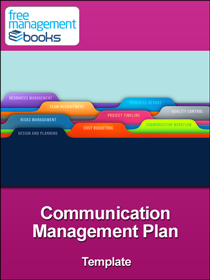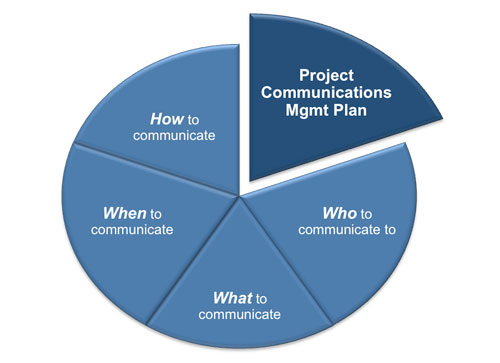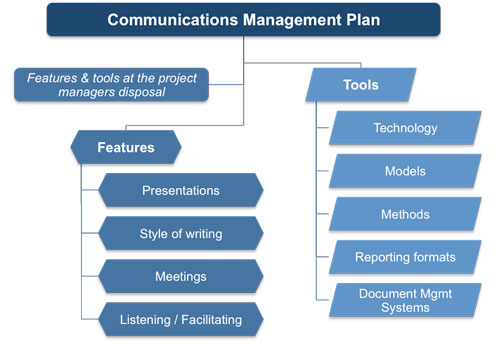
Communications Management Plan Template
This template helps you to produce a project communications management plan. The purpose of this plan is simply to ensure all formal communications with the project stakeholders are managed properly.
The need for good and appropriate communications between the project manager and project stakeholders is critical for the success of any project. Understanding the importance and influence of each stakeholder enables you to define the appropriate depth and frequency of communication you have with that person throughout the length of the project.
There are four simple questions you need to ask about each communication as show in the diagram below. Each answer tells the project manger how best to manage the wide variety of working relationships he has with all those individuals involved and connected with the project.

It is essential that as a project manager you manage and satisfy the expectations of the stakeholders, which can vary considerably. The main aim for any project manager who is solely responsible for managing communications during a project is to ensure that every communication is effective. This means three things must occur:
1) The information people need to perform their role gets to them in a timely fashion and is complete.
2) No-one should receive irrelevant or inappropriate correspondence.
3) Issues / problems are identified at the lowest levels and a proven escalation process is defined.
The communications management plan defines an infrastructure for all project communications i.e. its generation, collection, storage and distribution. This ensures that the large quantity of data and information created during a project is accurately recorded, analyzed and managed to ensure the execution of deliverables and work packages goes according to the project plan.

The purpose of all communications from the perspective of the project manager is to offer reassurance and retain commitment throughout its execution, implementation and acceptance by the end-user. It is important to avoid situations where stakeholders hear something about the project that leads them to make incorrect assumptions that lead to conflict.
This plan might seem one too many tasks during the planning phase of a project but focusing on the importance of communication at this stage will eradicate problems later on that could have been avoided. Communicating in a well-structured and informative manner keeps all parties focused on and motivated to attain the project objective.

